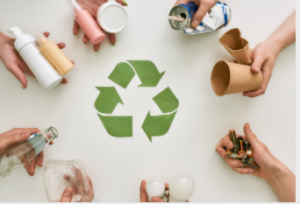There are a lot of good reasons to recycle your empty plastic water bottle. For one, beverage bottle recycling Adelaide conserves natural resources that are in limited supply.
 In states with container deposit laws, like Massachusetts, recycling rates are higher, she says. A recent Charles River cleanup found that non-deposit bottles accounted for 4.5 to 1 of the trash collected, despite the fact that they represent less than half the beverage market.
In states with container deposit laws, like Massachusetts, recycling rates are higher, she says. A recent Charles River cleanup found that non-deposit bottles accounted for 4.5 to 1 of the trash collected, despite the fact that they represent less than half the beverage market.
Recycled Materials
While glass and metals can be recycled indefinitely, the same cannot be said for plastics. In fact, a single plastic can only be recycled about three times before it begins to degrade and lose its structural integrity.
That’s why beverage companies have committed to ensuring that 50% of their PET, glass bottles and aluminium cans are recycled by 2025. It will help to reduce the amount of new materials that are needed and will also support our efforts to reduce plastic pollution.
Bottle bills are intended to increase recycling rates by offering consumers a small incentive to return their empty beverage containers. States with these laws report higher recycling rates than those without them. These rates are especially high in states that have a refundable deposit on beverage bottles. Because the bottles have a cash value, people are less likely to litter them, and they’re more likely to end up in the correct bins.
The beverage industry opposes these types of deposits, however, as they function like a tax on their products and limit the number of beverages that can be sold. The industry says that these deposit laws cost them billions in lost revenue. In addition, they say that the bills deprive recycling programs of valuable scrap material that would be used to pay for processing less valuable items.
Reduced Energy and Fossil Fuels
Plastic water bottles are a particularly good example of the benefits of bottle-recycling programs. Creating one ton of virgin plastic uses up to 3.8 barrels of oil, a nonrenewable natural resource that is in limited supply. Recycling one ton of PET conserves this amount of oil.
According to an industry study, beverage bottles make up 40-60% of the litter discarded on roadsides, parks and beaches. A refundable deposit encourages people to recycle these containers, keeping them out of landfills and off of the streets. The beverage industry also helps with efforts to promote recycling, such as donating money to nonprofit groups that organize trash cleanups and other events and hosting pizza parties for top elementary school recyclers.
Reduced Carbon Footprint
When you recycle beverage bottles, you reduce your carbon footprint. It is because recycling is a form of waste segregation, which means that you are taking used materials and turning them into new products rather than dumping them in landfills. It cuts down on the energy consumption associated with plastic production, transportation and disposal, which is a huge benefit to our planet.
Polyethylene terephthalate (PET) is a strong and lightweight material that is 100% recyclable. Many American beverage companies use PET to bottle their drinks, and the FDA has certified post-consumer recycled (PCR) PET as food safe. PCR PET is made with reclaimed plastics that would otherwise have ended up in landfills or waterways.
Likewise, beverage bottle recycling Adelaide conserves natural resources by preventing the need to produce new glass and plastic materials. It also prevents littering and contaminating soil and waterways with harmful elements. The reusability of the PET bottle also reduces the amount of solid waste that goes to landfills.
States with so-called “bottle bills” have seen reduced beverage container litter after implementing these types of programs, which are designed to increase the number of empty bottles that get returned for a refundable deposit. It is done by encouraging consumers to place these containers in bins, which keeps them off the streets and out of our wildernesses and waterways.